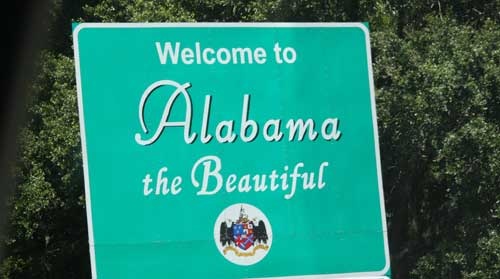Having fled, immigrants again trickle back to Alabama

By Cheryl Aguilar, New America Media
When Alabama passed HB56 last year, the mostly Latino crowd at Birmingham's Our Lady of Lourdes Catholic Church began to thin. Nine months on, church members say some of those families may be trickling back into the state.
Jairo Vargas is publisher of Latino News, which has been covering Alabama's Latino community since 1997. A regular at Our Lady of Lourdes, he says after HB56 went into effect in June of 2011, the church became silent as members of the choir fled the state.
Then last month, "one of the families who moved from Alabama to Chicago returned," he says, adding they seemed eager to come "home."
Their return comes as challenges to HB56 and similar anti-immigrant laws passed in Arizona and Georgia get set to make their way to the nation's highest court. This past week, a three-judge appeals court panel in Atlanta said it would not rule on the cases until they go before the Supreme Court in April.
Passed in June of 2011, HB56 is widely viewed as the nation's toughest anti-immigrant law. It effectively criminalizes anyone who is an undocumented immigrant for being in the state, also denying them basic public services and requiring that schools verify the status of students enrolled.
Reverend Angie Wright from the Greater Birmingham Ministries says immigrant families in Alabama are "still living in terror, still unable to work, still live in constant threat of being separated."
She adds, "I continue to hear every week of families leaving and families being separated."
Despite the risks, however, community members like Jose Antonio Castro say people are coming back, if slowly.
As host of La Jefa, a Spanish language radio station that has worked to inform and mobilize the community around HB56, he says he's received calls from listeners "telling us that their family members and friends have returned."
According to Vargas, returning families cite the difficulties of building a new life from scratch in a new state. "Some couldn't find work. When you migrate somewhere else, you have to start from zero all over again."
Opposition to HB56 has come from activist and pro-immigrant groups, as well as from the business community, which has complained that the flight of immigrants from Alabama cost the state in tax revenue and created a severe labor shortage.
Economist Samuel Addy with the University of Alabama recently released a study estimating that losses resulting from HB56 total between $2.3 billion and $10.8 billion in economic output, $264.5 million in tax revenue, and 70,000 to 140,000 direct and indirect job losses.
"The law failed, it failed in getting people out and it failed in realizing savings," says Addy, who notes that with last week's appeals court decision and the unsettled nature of the laws, returning immigrants are at continued risk of being taken advantage of by unscrupulous employers.
"They [immigrants] will return and work quietly. The problem is that with this law, they can be cheated because they will be underpaid even more than before."
Activists groups also warn that last week's delay by the U.S Court of Appeals means that HB56 will continue to hurt immigrant families.
"The Alabama and Georgia anti-immigrant laws have created a police state where citizens and immigrants alike are subject to inquisitions during traffic stops, and state employees and ordinary people are asked to view their neighbors with suspicion," says Cecilia Wang, director of the American Civil Liberty Union's Immigrants' Rights Project. "The U.S. Constitution does not tolerate such intrusions on our liberty."
The ACLU is among a host of civil, labor and immigrant rights groups that will participate in a historic reenactment of the 1965 Selma to Montgomery voting rights marches. The event, to be held March 9, will culminate with a rally at the State Capitol in Montgomery.
Opponents of HB56 have also rallied behind the "BoycottHate" petition, sponsored by a coalition of national civil and human rights groups.
The petition has already gathered some 16,000 signatures since it was launched in late February. Its aim is to put pressure on automakers Hyundai and Honda, both of which operate factories in Alabama, to come out in support of the state's immigrant population.
"While we have received indirect or informal communications regarding our request for a meeting with the top executives of the top foreign auto makers, we have not received any official response and take from their silence that they are refusing to stand for repeal of HB56," said Eliseo Medina with the Service Employees International Union (SEIU).
A 2010 study from the retail car Web site Truecar.com found that 7 of 10 new cars purchased by Latinos were Asian brands. "They count on Latinos to stand by them as consumers; now it's time for them to stand by Latinos when they need help," added Medina.
SEIU says these two companies have received millions of dollars in tax breaks and other incentives from state and local governments in Alabama to set up shop there.
"The state," says Medina, "pledged to set aside its racist past, but HB56 returns the state to that dark history."
(Photo by J. Vargas via New America Media.)
